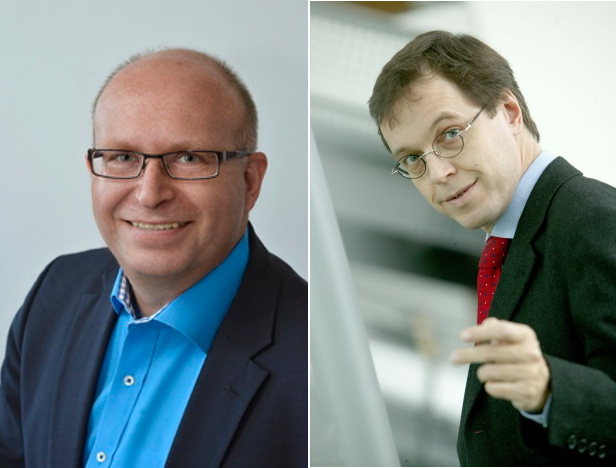
INT research unit heads Prof. Dr. Jürgen Janek and Prof. Dr. Martin Wegener are among the eight KIT scientists on the 2020 list of Highly Cited Researchers by Clarivate / Web of Science.
Press information (in German)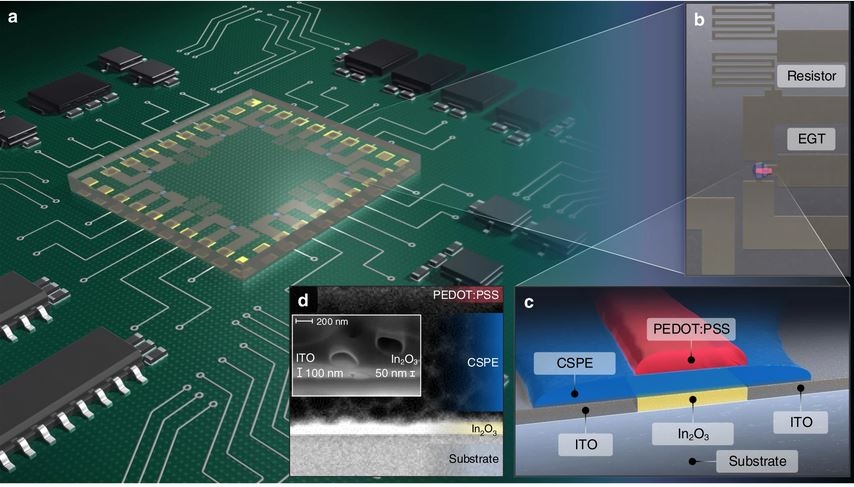
A hybrid physical unclonable function based on metal oxide thin film devices, exploiting the inherent randomness of printed materials, was demonstrated by researchers of KIT.
Nature Communications article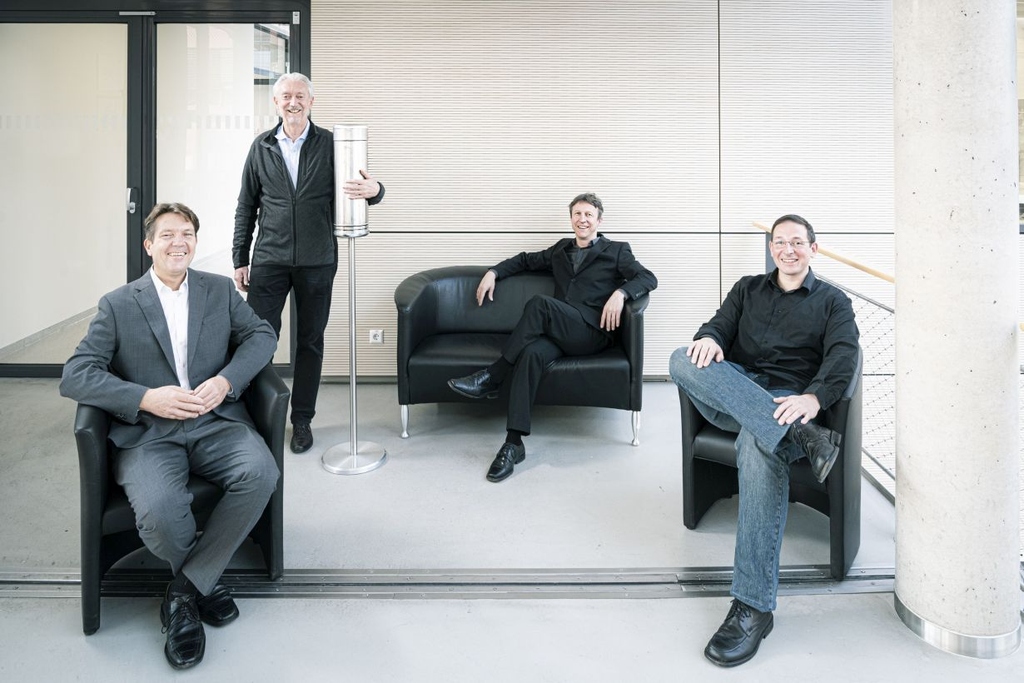
Researchers of KIT developed a simple device to effectively kill the Corona virus in aerosols of ambient air in closed rooms.
Press information (in German)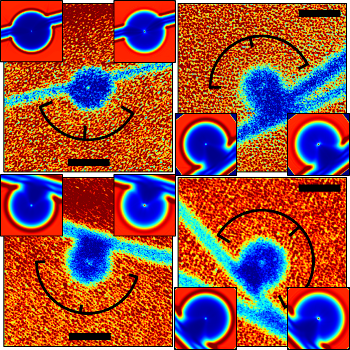
Researchers at INT have detected the minute van-der-Waals force between indium atoms and sub-micron silicon dioxide spheres with matter-wave diffraction.
Phys. Rev. Lett. 125, 050401 (2020)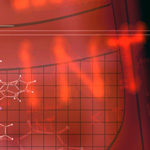
Explore, Predict, Discover and Validate: the Future of Materials Science: The symposium on the Future of Materials Science (FMS) is changed into a series of online presentations starting June 24th, 2020.
FMS seminar series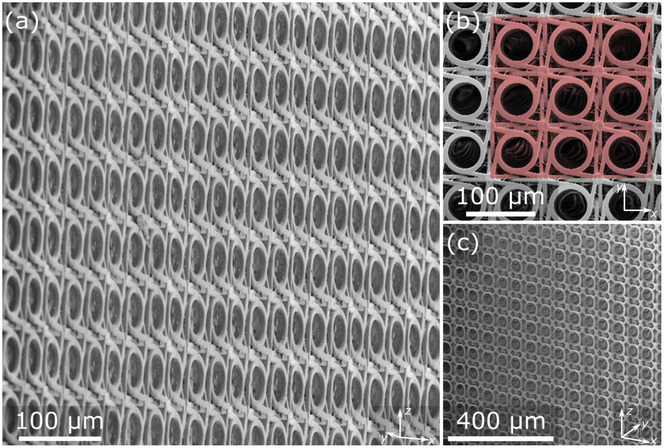
Researchers of KIT have developed a system to print highly precise, centimeter-sized objects with submicrometer details at a so far unmatched speed using small materials building blocks.
Advanced Functional Materials, DOI 10.1002/adfm.201907795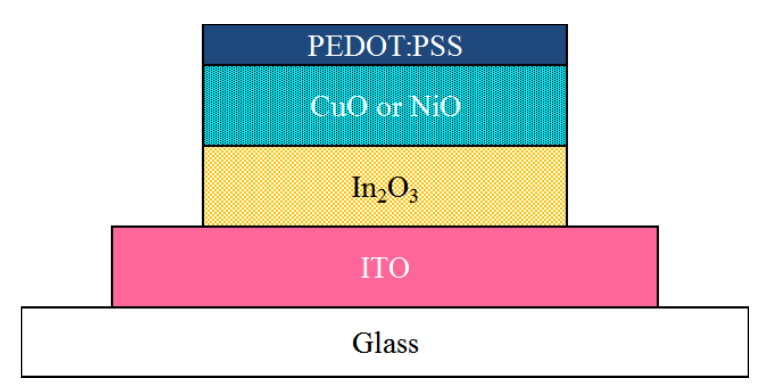
Oxide semiconductors have the potential to increase the performance of inkjet printed microelectronic devices such as field-effect transistors (FETs), due to their high electron mobilities.
IEEE Electron Device Letters Vol. 41/1, 187 (2020)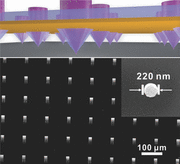
"Apertureless Cantilever-Free Pen Arrays for Scanning Photochemical Printing" by Zhou et al. in Small 11 (2015) 913-918
More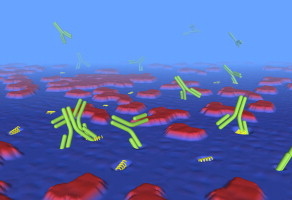
"HIV-1 antibodies and vaccine antigen selectively interact with lipid domains" by Hardy et al. in Biochim. Biophys. Acta 1838 (2014) 2662-2669
More
A recent publication in Science shows how coherent single nuclear-spin manipulation using electric fields only can be achieved. This quantum-mechanical process is present in all nuclear spin systems and uses of the hyperfine Stark effect as a magnetic field transducer at the atomic level.
Science June 2014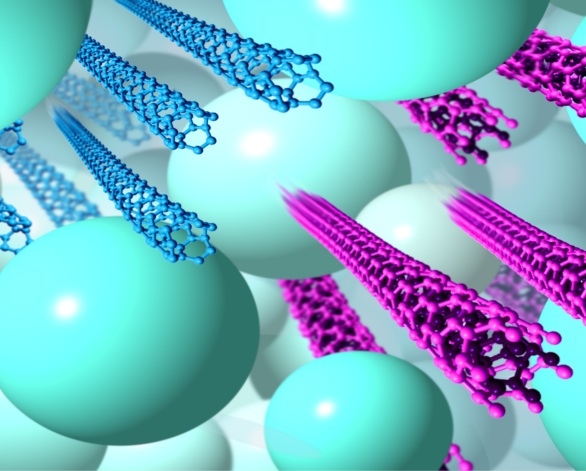
We demonstrate a new method utilising gel chromatography to separate double walled carbon nanotubes from the as prepared raw material containing single- and double- walled nanotubes.
ACS Nano (2014) DOI: 10.1021/nn500756a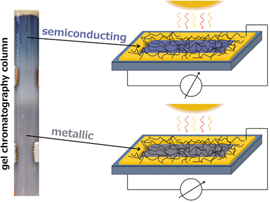
We provide a comparison between carbon nanotube - silicon solar cells fabricated with either semiconducting, metallic or mixed nanotubes.
Physica Status Solidi A (2014) DOI: 10.1002/pssa.201431403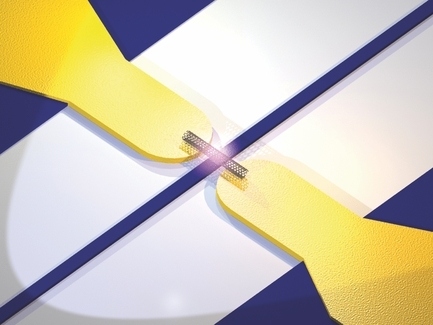
Waferscale, broadband sources are realized integrated with nanophotonic circuits allowing for propagation of light over centimeter distances.
Advanced Materials 26, 3465 (2014)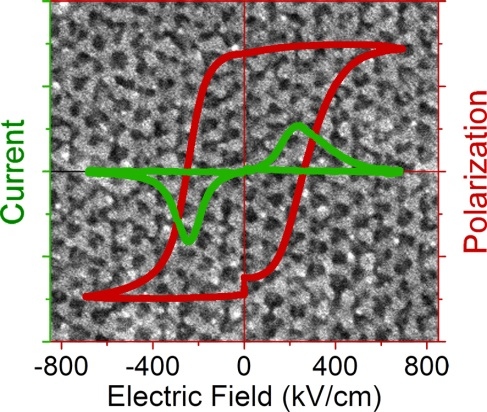
Reitz et al. report in this paper that cubic mesoporous lead zirconate titanate (PZT) thin films with both a high degree of biaxial texturing and good ferroelectric properties can be produced by facile coassembly strategies.
Chem. Mater., 2014, 26, 2195–2202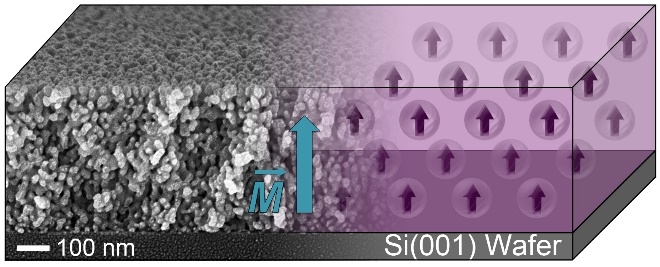
Preference for room-temperature out-of-plane magnetic alignment in solution-processed mesostructured thin films is unique, as reported by Suchomski et al.
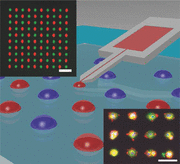
"Click-Chemistry Based Multi-Component Microarrays by Quill-Like Pens" by Hirtz et al. in Adv. Mater. Interfaces 1 (2014) 1300129
More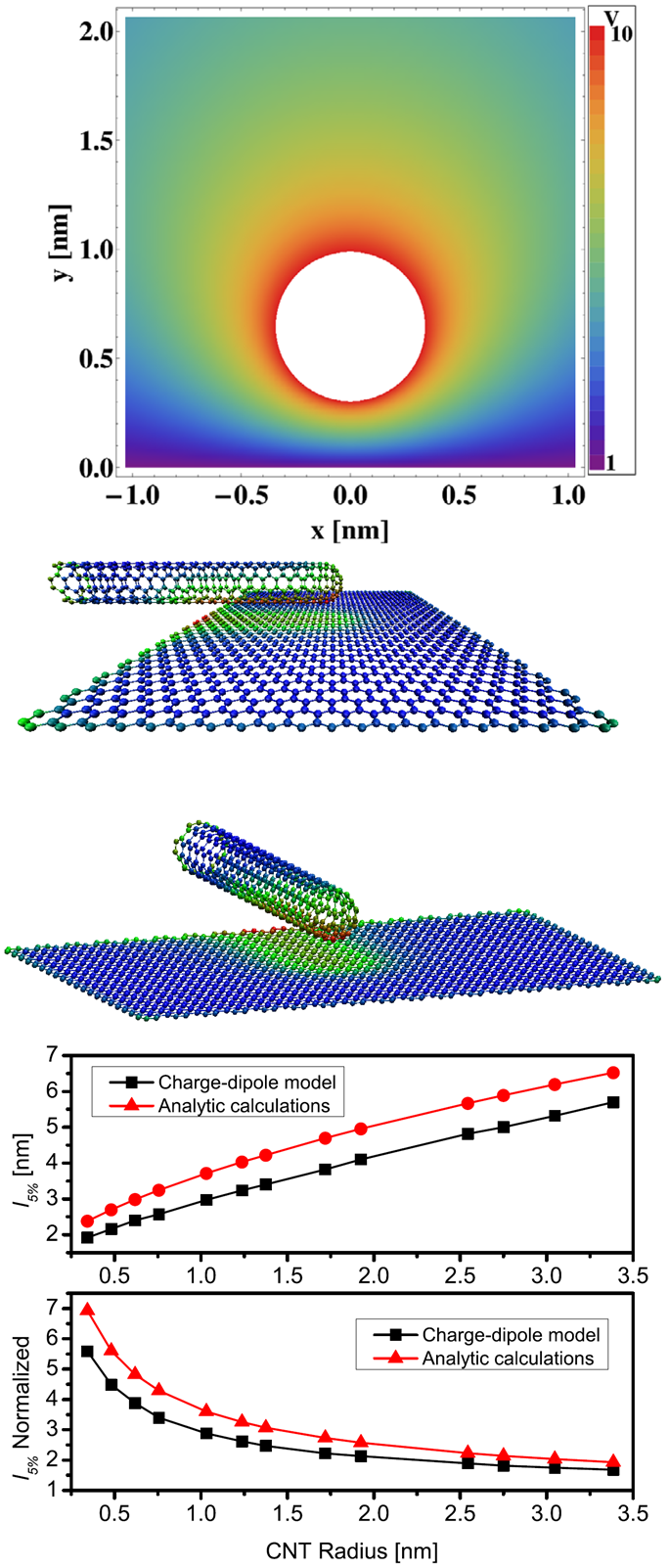
Here we have studied the equilibrium distance of armchair carbon nanotube-graphene junctions as a function of the nanotube diameter and the electrostatic influence of the nanotube on the graphene sheet.
New Journal of Physics Jan. 2014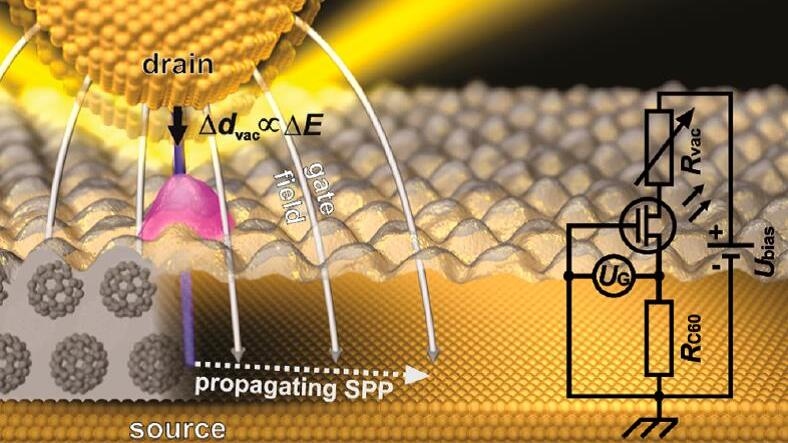
Controlling light at the nanoscale by electrical fields requires objects, in which electro-magnetic properties are responsive to gating fields. In two recent publications it was shown that molecules fulfil this requirement and act as such quantum transducers. This article was presented as research highlight in Nature Photonics.
Nano Letters 2013 &
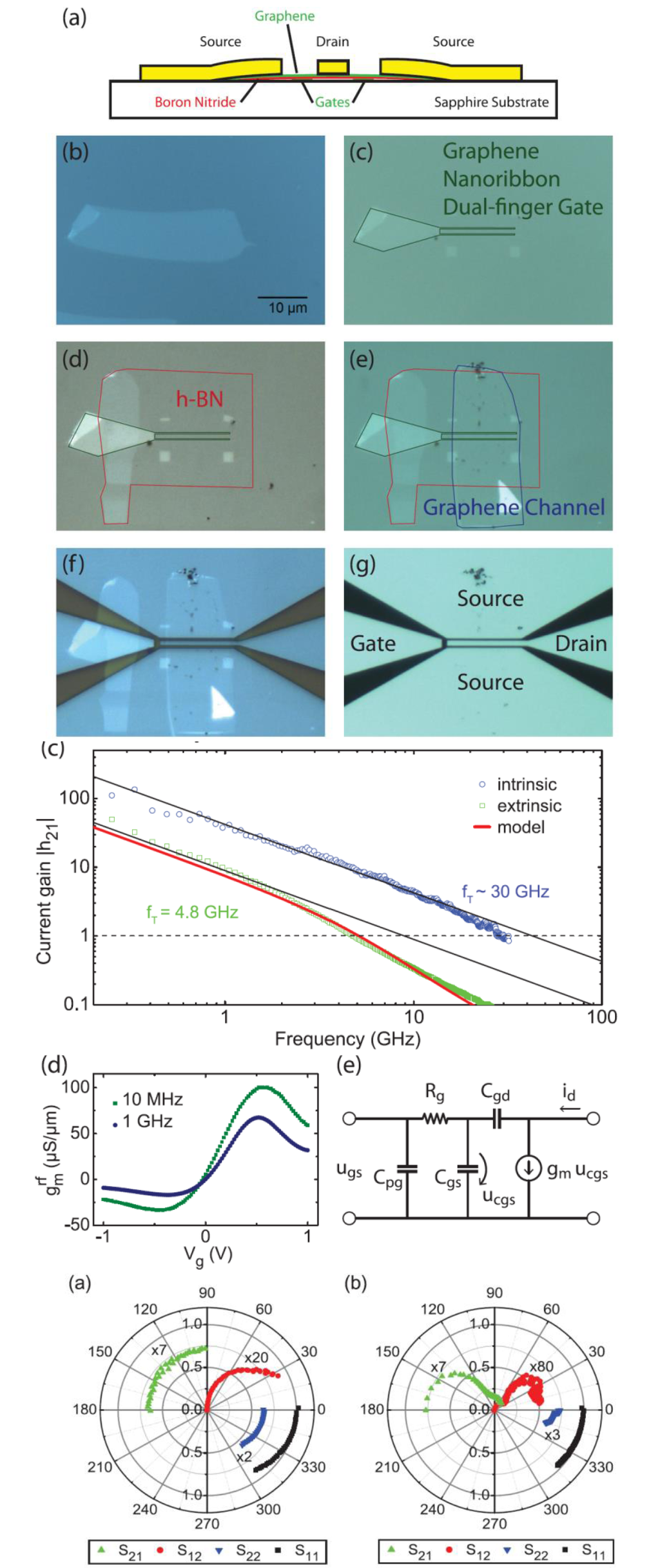
Our new paper shows the possibilities of using graphene nanoribbons back-gates in microwave graphene field effect transistors on hexagonal boron nitride substrates.
Appl. Phys. Lett. 102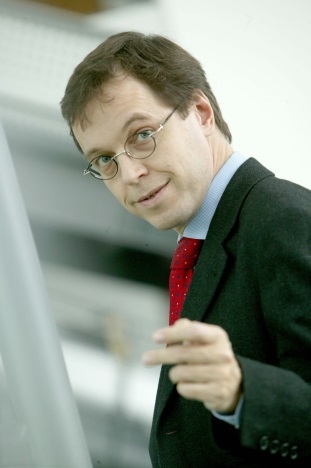
Prof. Martin Wegener, research unit chair at the INT, receives, together with Profs. M. Bastmeyer and Ch. Barner-Kowollik, Erwin Schrödinger Prize for cell cultivation in a 3D-laserprinted ultrasmall "Petri dish."
Helmholtz-Gemeinschaft News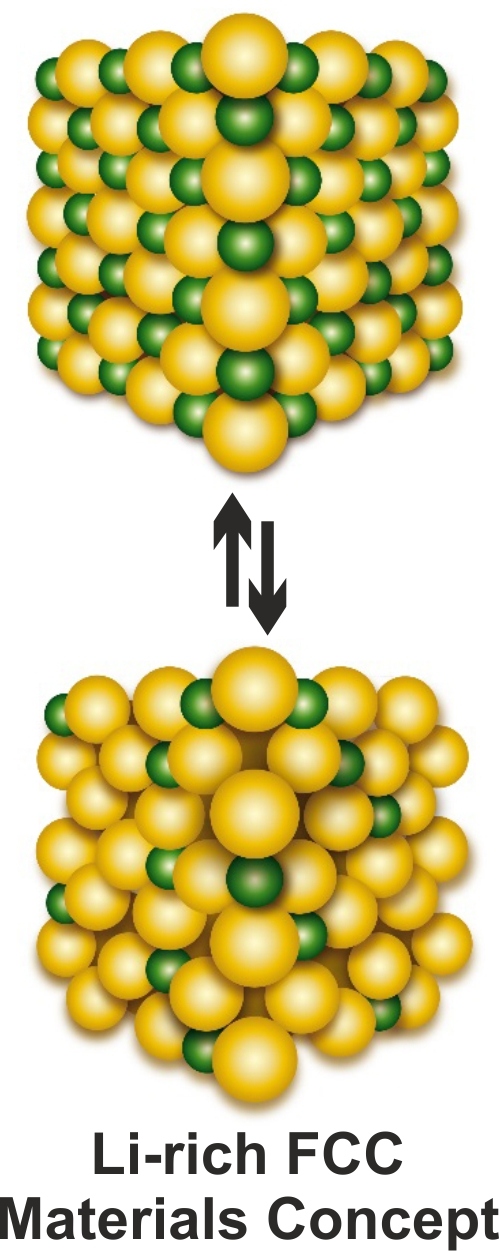
M. Fichtner (Energy Storage Group) and C. Punckt (NanoMat) won a grant, focused on developing a new class of powerful materials for electrochemical energy storage, within the FET Open Call "Novel ideas for radically new technologies."
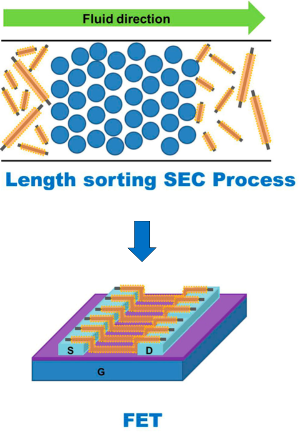
Highly enriched samples of semiconducting single walled carbon nanotubes have been prepared by combining polymer-wrapping with size-exclusion chromatography. Using this SWCNTs short-channel transistors were built showing the best performance published so far. More see ACS Nano, Article ASAP.

Prof. Peter Gumbsch, research unit chair at the INT, was elected a member of the US NAE for his multiscale modeling research in the fields of fracture mechanics and deformation behavior of materials.
BMBF News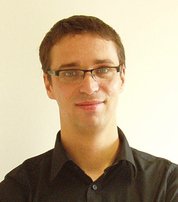
Prof. Carsten Rockstuhl, research unit chair at the INT, was recently elected as an OSA Fellow for his seminal contributions to the field of theoretical and computational nanophotonics.
OSA News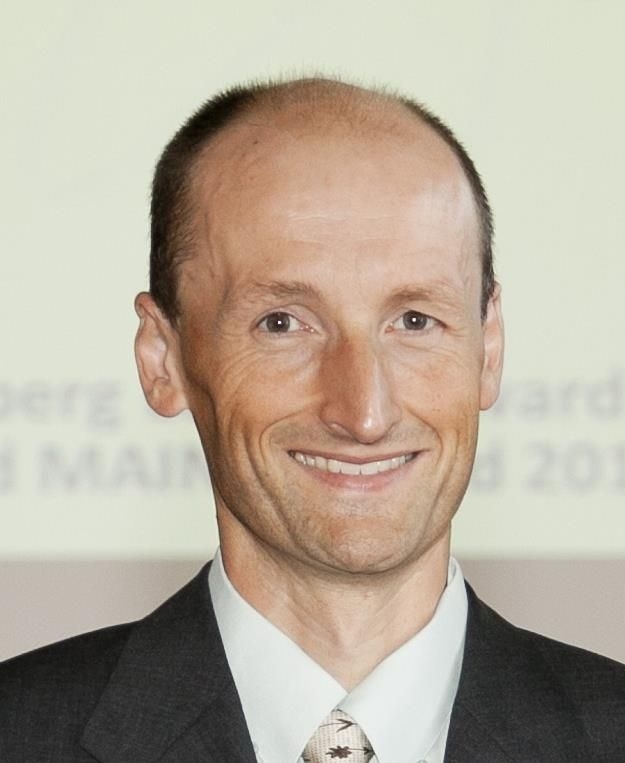
Prof. Wolfgang Wernsdorfer, who has close collaborative ties with the INT, was awarded an Alexander von Humboldt Professorship at the KIT.
KIT News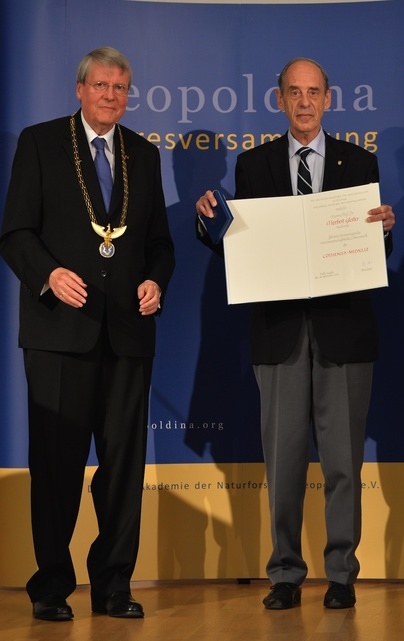
Prof. Herbert Gleiter, one of the founders of the INT, receives a Cothenius Medal from the Leopoldina.
Leopoldina News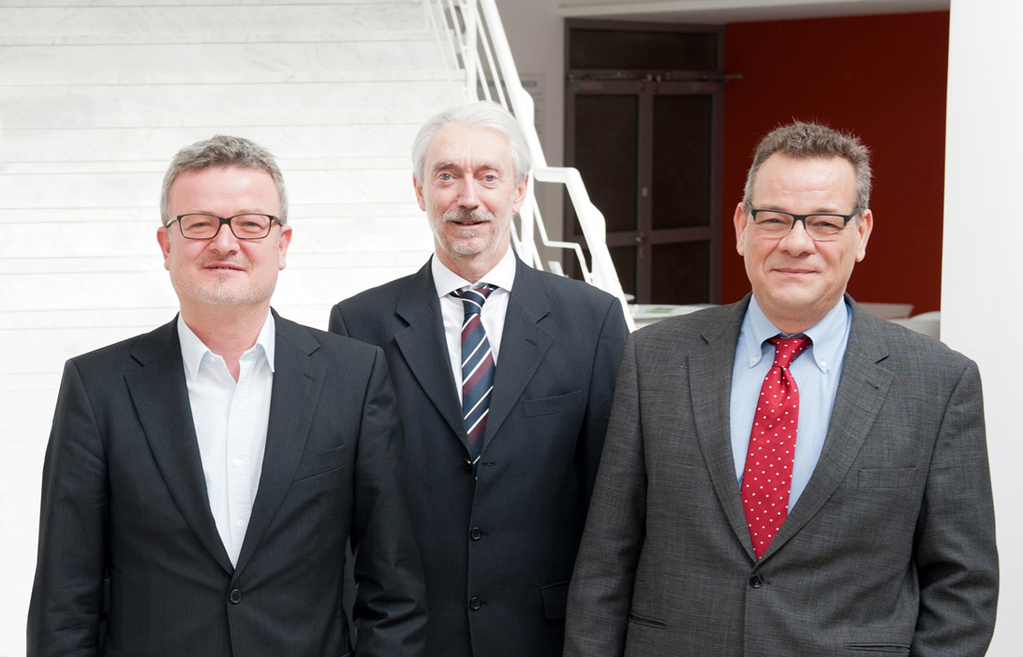
Prof. Maximilian Fichtner, leader of the research group “Energy Storage Systems,” is succeeding Prof. Horst Hahn as executive director of our partner institute, the Helmholtz-Institut Ulm.
Helmholtz Institute Ulm news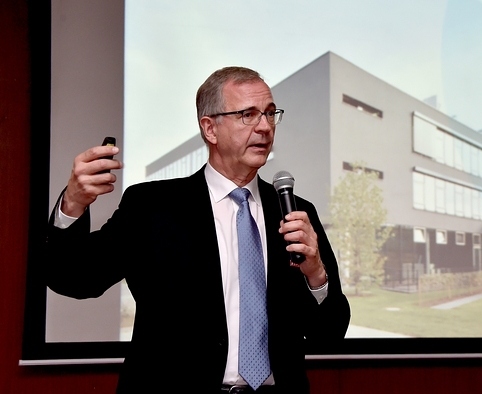
Prof. Harald Fuchs, research unit chair at the INT, was awarded an Honorary Professorship by NanjingTech University for his achievements in Nanotechnology.
NanjingTech University news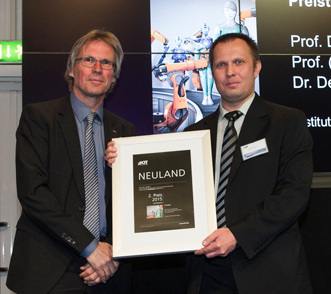
At the recent annual university celebration, Horst Hahn, Wolfgang Wenzel, and Denis Danilov were awarded second prize in the exceptional category in the KIT Innovation Contest.
KIT Innovation website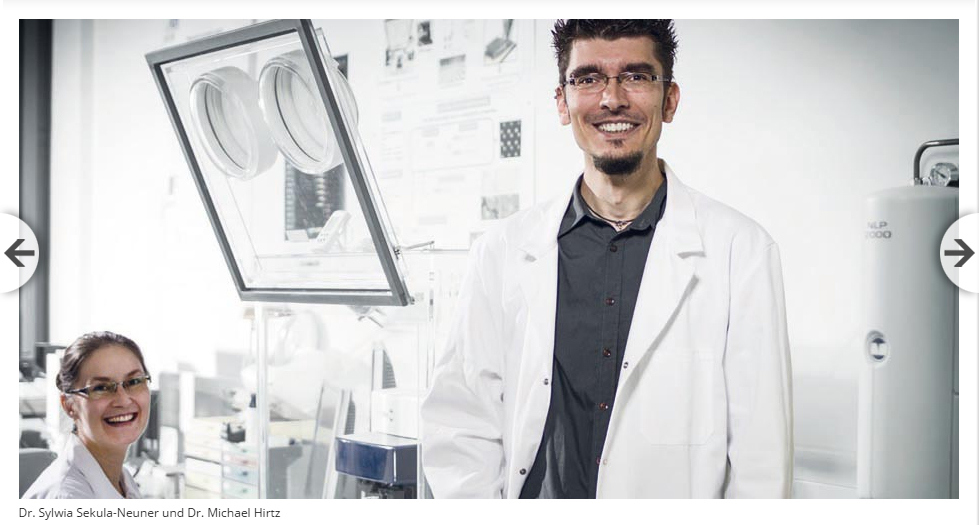
Our project on mast cell activation for allergy testing is featured in the KIT innovation report.
Neuland - KIT Innovation Highlights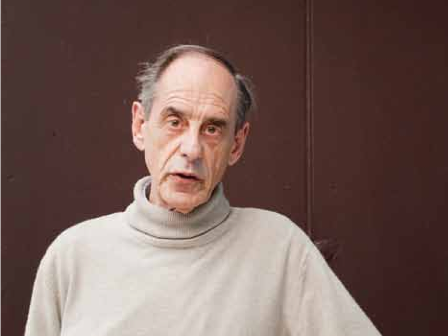
Our institute's founder is featured in the latest edition of the KIT magazine "lookKIT."
lookKIT January 2015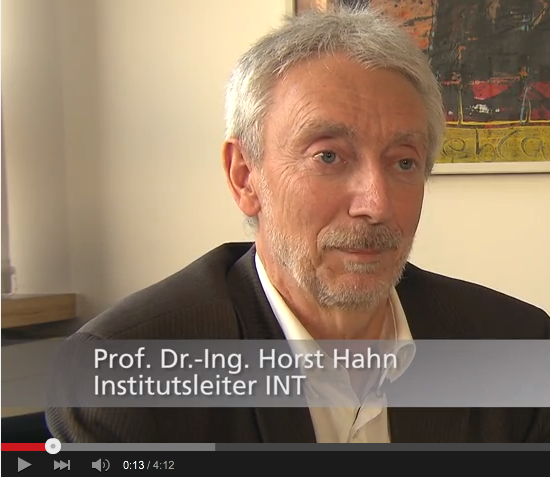
Learn more about Nanoglass in this interview with our institute director, Professor Horst Hahn, on YouTube (German).
Watch the videoMichael Hirtz was awarded the prize for "best talk given by a young researcher" at the 17. Heiligenstädter Kolloquium on technical systems for the life sciences.
Award detailsPatrick Müller, Physiker und Doktorand, fährt fünf- bis sechsmal in der Woche mit dem KIT-Shuttle zum Campus Nord, um in den Laboren des Instituts für Nanotechnologie zu experimentieren.
KIT Dialog Artikel 4.2014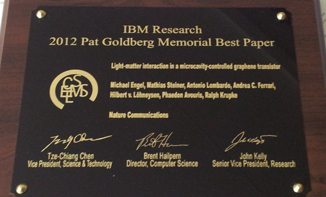
"Light-matter Interaction in a Microcavity-controlled Graphene Transistor," co-authored by Dr. Michael Engel, Prof. Hilbert v. Löhneysen and Prof. Ralph Krupke and researchers from Cambridge University and IBM, is one of five papers to win this year's Pat Goldberg Memorial Award for the best papers published in 2012.
KIT press release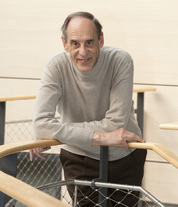
Professor Herbert Gleiter has been elected to the Academia Europaea, an organization of leading experts across academic fields who collectively promote learning, education and research.
KIT internal news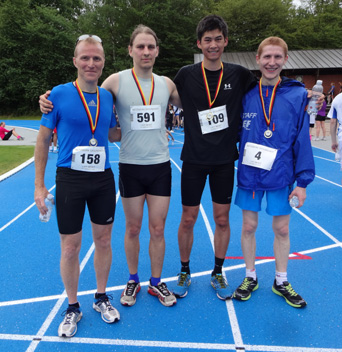
INT scientists Simone Ferrari, Lukas Gerhard, Ralph Krupke, and Jens Mohrmann won second place, out of 18 teams, in the 2014 KIT 10km championship run.
Championship Results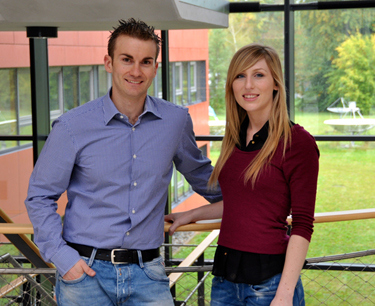
Ben Flavel and his colleagues' work on DWCNTs is covered by the UK based nanotechnology news website Nanotechweb.
Nanotechweb Article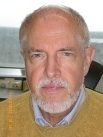
Current Honorary Adviser at the INT and former Research Unit Chair, Professor Wölfle has been awarded for his "fundamental contributions to the theory of quantum transport processes in superfluid3 He, heavy fermion superconductors and disordered metals".
Award Details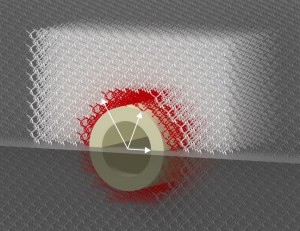
KIT researchers have created the first mechanical invisibility cloak. When placed over an object, the object cannot be felt at all — either by a finger, or a more sensitive measuring device.
Nature Communications June 2014
Press Release in German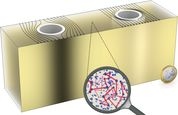
Researchers at the KIT have developed a cloak that is broadband, omnidirectional, and big enough to hide a macroscopic object. The new cloak works in foggy or "diffusive" conditions.
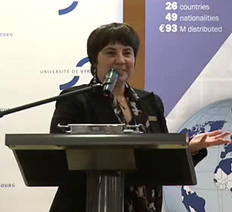
April 2014
Professor Luisa De Cola has been elected as a member of the German National Academy of Sciences, Leopoldina. As well, French President Francois Hollande nominated her as “Chevalier de la Légion d´Honneur.”
Further Details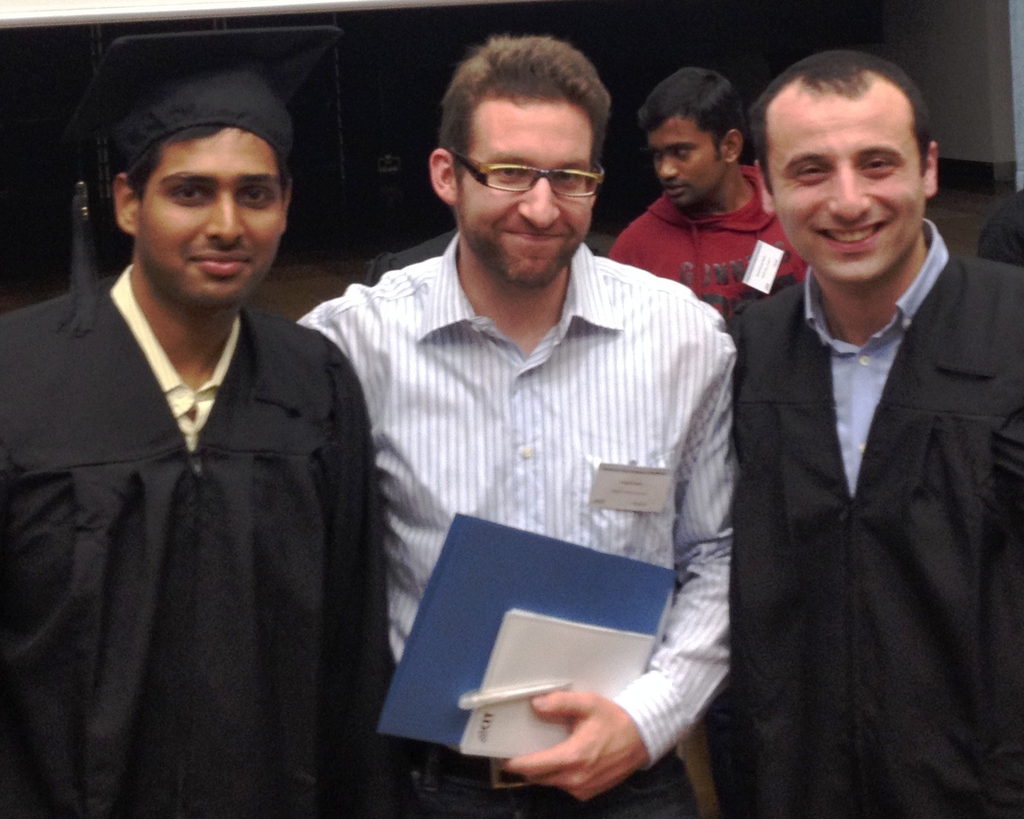
Patrik Rath wins the KDOP outstanding publication award in the research area "Photonic Materials & Devices" for his work on diamond optomechanics. Congratulations!
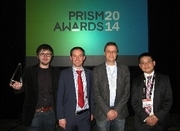
Nanoscribe, a spin-off from the KIT, has received the „Prism Award 2014“, awarded by the International Society for Optics and Photonics (SPIE) for outstanding innovations in Photonics.
Press Release_rdax_98p.jpg)
The Chinese Nanjing University of Science and Technology is establishing a nanoscience institute using the Institute of Nanotechnology as a model.
Press Release